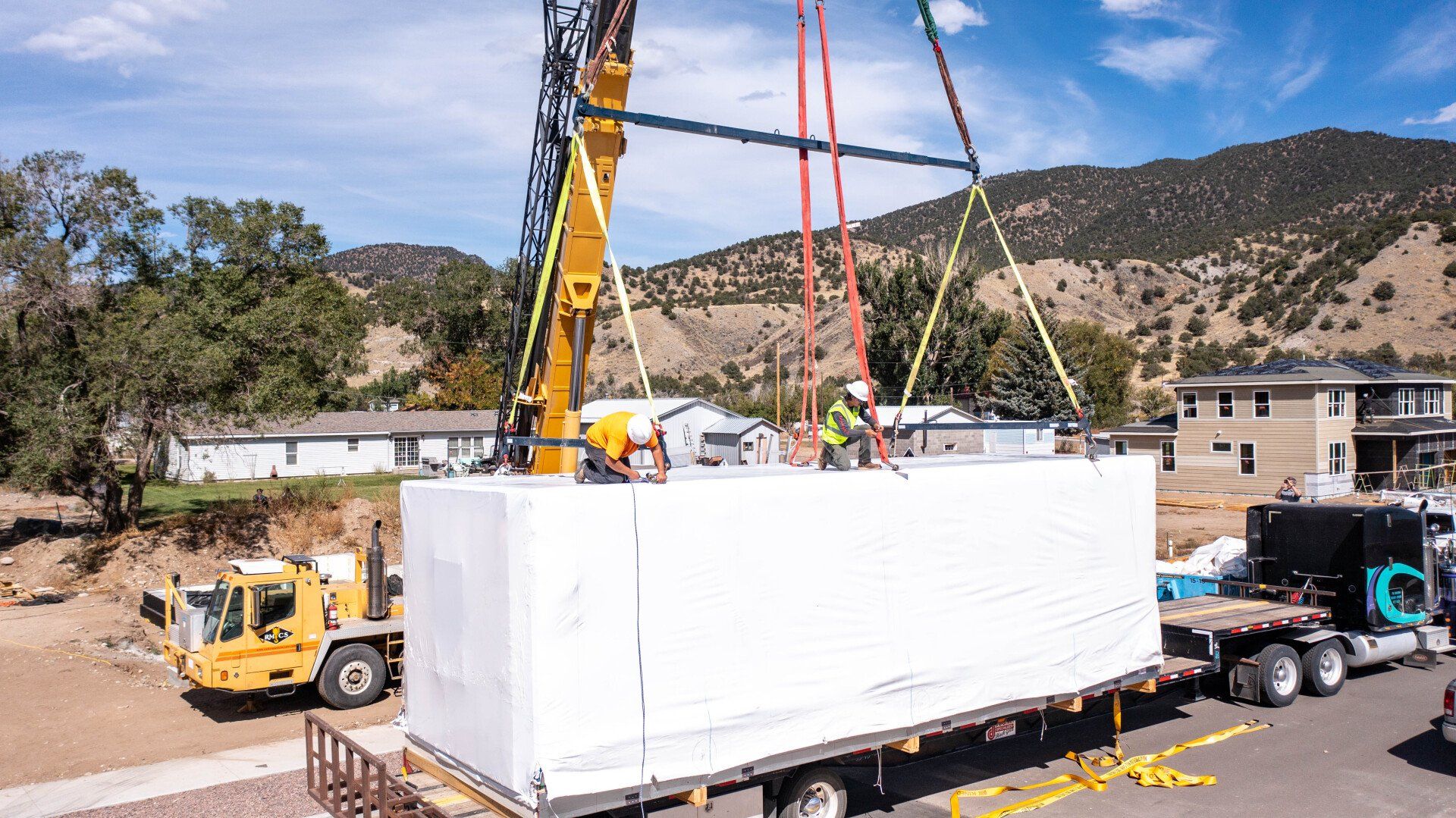
Share this Article     | Summary
We’re watching Building Information Modeling (BIM), the use of AI for increased safety, and more 2023 trends in the offsite construction industry. In today’s construction industry, clients have increasingly high expectations when it comes to build quality, price and speed. Because of offsite construction’s shorter construction schedule, smart design and factory-controlled manufacturing, it’s quickly becoming one of the leading and preferred methods of construction. A range of trends in the offsite construction industry are emerging, too, alongside the industry’s exponential growth. As one of the least digitized industries in the world, what we’re seeing in 2023 is that technology is giving offsite construction an incredibly competitive edge. From Building Information Modeling to AI and 3D printing, these technologies are reshaping the industry and serving clients better. 4 offsite construction trends we’re watching in 20231) Building Information Modeling (BIM)Building Information Modelling, often abbreviated as BIM, is a process for creating and managing information during a construction project. With key stakeholders updating the BIM collaboratively, you get a model that details every aspect of the construction project and allows all of those stakeholders to optimize their actions alongside one another. This not only results in a more organized system, but a greater build quality and life value for the project. BIM isn’t new technology itself. How the offsite construction industry is using it, however, is showing impressive results that could propel the industry even further. In fact, in a recent study, researchers explained that while offsite manufacturing and BIM can both improve the performance of the construction industry individually, together, they can do even more. “The offsite technologies are improving the speed and quality of construction delivery, and using BIM with these technologies will increase the amount/scale of facilities that can be modeled while decreasing the modeling time and increasing the quality (ICE, 2012).” With an existing reputation for its short time to market, quality and affordability, the streamlined process of BIM in 2023 and beyond will continue to improve offsite construction. 2) AI for increased safety and risk mitigationArtificial Intelligence is another technology that has incredible potential to reshape the construction industry as a whole. Think: VR headsets that show different build options, or construction workers who can work from the safety of their own homes. AI in offsite construction could even be used alongside BIM to flag problems and conflicts in the aggregated data, or allow stakeholders to collaborate and design better together. AI’s Machine Learning capabilities will also prove important, helping streamline the decision-making process and improve the management of everything from resources to scheduling and tasks. 3) 3D printed buildingsSimilar to BIM, 3D printed buildings aren’t new to the offsite construction industry. However, the proliferation of the technology is allowing companies to leverage construction 3D printing and all its benefits more than ever before. Incredibly precise, 3D printing construction works as an additive process, only adding the exact amount of material required to build each element of the project. Not only is the 3D printed building process inherently sustainable because it produces less waste, but it is also a relatively fast process, appealing to two major USPs of the offsite construction industry. In 2023, we will see more and more companies adopting 3D printed building technology because of its speed, relative autonomy and low waste. But, we will also see people using 3D technology as a piece of the bigger offsite construction puzzle. Offsite construction for projects like bridges, for example, will also begin to incorporate 3D printing as a part of the process, utilizing multiple kinds of technologies like robotics, 3D printing, IoT and more to build safer, more effective projects that reduce waste and build time. 4) Invested partnershipsTechnology is key to advancing offsite construction, but even more so, are the people behind it. In conversations with key industry leaders about the future, we’re learning how important we all believe it is to work with partners that are equally invested in each other’s success and the industry as a whole. And in 2023 and beyond, we see invested partnerships trending upwards. For us, that means pouring in maximum effort to every build of which we are a part. Our project management team invests the necessary time to ensure airtight transportation logistics, from pre-project planning to job site visits. Additionally, we approach every project with a genuine investment in our client’s success. We believe you deserve a logistics partner that not only flawlessly executes, but also celebrates your wins. Furthermore, Stream Logistics is deeply invested (literally) in the accelerated widespread adoption of offsite construction. In fact, we have a 25-year plan to invest $50 million into ensuring the success of offsite and creating the best logistics solutions — so that together, we can build better, faster, and cheaper. 2023 And BeyondBuilding Information Modeling (BIM), AI, 3D printing buildings, and invested partnerships are just the beginning. Be sure to follow us on LinkedIn for updates throughout the year on other expert insight, news, and trends in offsite construction. Stream Modular is a transportation logistics company specializing exclusively in modular construction. We help modular manufacturers and builders transport mods, pods and panels so they arrive on time and safely to the build site. |
| Have transport logistics questions about your next modular construction project? Book a call with our specialized modular team. | Get Expert Advice |